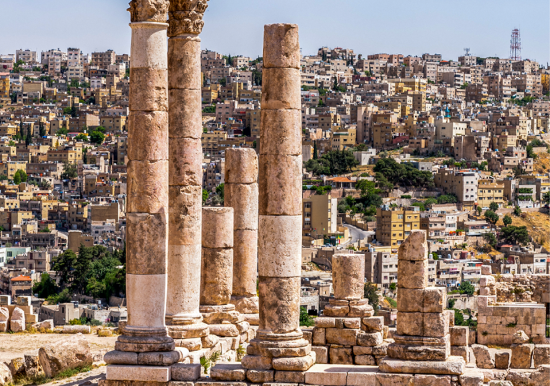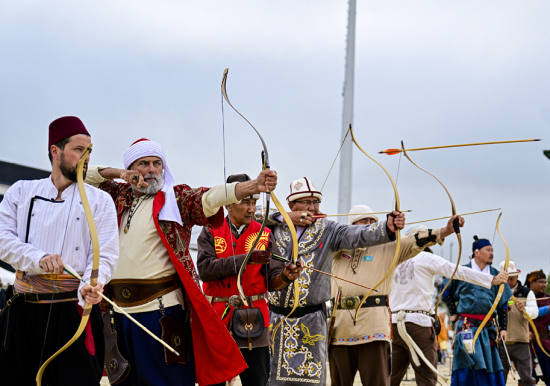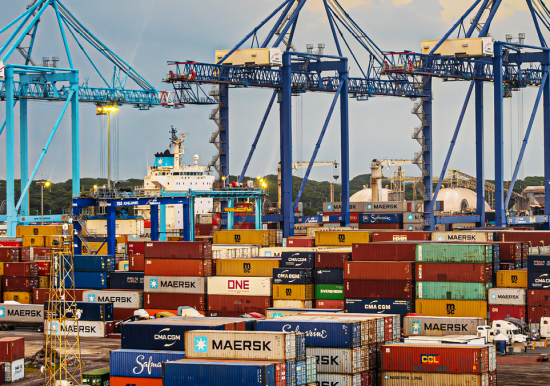
Morocco’s Growing Marketplace
The Kingdom of Morocco is the only lower-middle income country to be featured within the top 40 of the Attractive Marketplace pillar (ranked 33rd in this pillar and 61st overall).
Situated strategically between Africa and Europe, and endowed with an array of natural resources, the Moroccan economy has taken important strides over the last two decades. Its accession to the WTO in 1995, a growing number of trade agreements, customs duty reform, and the reduction of tariffs enabled policy developments that led to an attractive market for foreign investment and stimulated productivity through competition. Notably, it has been able to maintain a stable growth pattern, with GDP amounting to USD 118.5 billion in 2018, an increase of USD 92.5 billion from just a decade earlier. The country was also able to buffer itself from the economic aftershocks of the Arab Spring, which affected most of its North African neighbours.

Transforming the Agricultural Economy
The agricultural sector is a significant part of Morocco’s economy, currently contributing 19% of the country’s GDP and creating a large number of jobs. Due to volatile weather patterns and the need to modernise agricultural production, the government has conducted long-term policy planning to support agricultural development while diversifying the economy.
The Green Morocco Plan (2008–2020), launched as a key part of that agenda, has been responsible for generating growth in the agricultural sector as well as preparing for future challenges. The focus was two-pronged: developing a modern and competitive agricultural sector while promoting productivity for smaller farms in rural areas. The Plan, which primarily focused on increasing competition and productivity, was supported and financed by partnerships with banks, microcredit institutions, associations, and the World Bank.
As part of the Green Morocco Plan, government organisations and policy instruments were restructured, and a number of new state agencies created. The agencies were established to focus on future development and challenges, such as the Office for Food Safety and the Agency for Agricultural Development of Morocco, which also oversees investments in renewable technologies and energy sources. The achievements of the Green Morocco Plan resulted in private sector investments and further adoption of agricultural mechanisation. Rural farmers are being equipped with better tractors and irrigation technologies to improve crop yield and ultimately generate revenue. The government has encouraged these investments through subsidies and tax rebates, to build a more competitive and productive agricultural sector.

Enabling a Stable Regulatory Landscape Morocco scores highly in the Stable Business Regulations indicator, ranking 15th overall and outperforming a significant number of high-income countries. One element of its success has been a rapid improvement in the efficiency and simplicity of the corporate tax and insurance contribution systems. The introduction of an online tax portal and approval of interconnected accounting software contributed to the growing ease of doing business in the country. In addition to taxes, regulations have been simplified in areas such as obtaining construction permits and starting a new business. Over the last decade, Morocco has seen a steady 50% rise in registered commercial entities, suggesting the existence of a healthy corporate and entrepreneurial environment, and the reduction of barriers to entry.
Ensuring Property Rights
Morocco ranked 24th for the Property Rights indicator, which considers the protection of physical and intellectual property rights. In terms of real property, the World Bank has consistently given higher ratings to the country over the last few years in its Doing Business Report due to policies that make its property register more transparent and simplify administrative steps to registration. Additionally, agricultural real estate initiatives, such as the titling of certain portions of rural land, show promise in encouraging local investments into agricultural intensification.
On the intellectual property front, Morocco has taken proactive steps to introduce more robust laws and policies, as well as increase penalties for the violation of rights. One example is through the government’s Office of Moroccan Industrial and Commercial Property, which ensures better business practices by promoting and protecting industrial and intellectual property rights. This Office grants and maintains a register of commercial trademarks, patents, designs, and Protected Geographical Indications. It also administers the national business register and an industrial property rights holders’ register, which ensures that the property rights of local and international companies are recognised and protected.

Morocco has made significant economic progress over the last two decades, particularly in improving standards of living and access to public services
Embracing Foreign Investment
Morocco ranked 56th on the Attracting Investments indicator, but there are some notable recent developments that suggest an upward trend in this important area. Moroccan authorities launched the Industrial Acceleration Plan (2014–2020), which supported economic diversification focused on emerging industries. As a result, the automotive and aeronautics manufacturing industry grew from 14% of total GDP in 2014 to 25% by 2018. According to the United Nations Conference on Trade and Development, Morocco boasts the fourth-highest FDI in Africa. In particular, large investments in the finance and automotive sectors supported a 36% increase in FDI in 2018. The government has ratified over 70 bilateral investment treaties, which have helped to create a favourable business environment for international investors. At the same time, a raft of FTAs has lowered barriers to trade and attracted investment. For instance, Morocco is the only country on the African continent with an FTA with the US.
Looking Ahead
Morocco has made significant economic progress over the last two decades, particularly in improving standards of living and access to public services. While these indicators are a positive sign for the economy, there is still more to be done. The World Bank’s Morocco Country Economic Memorandum 2017 identifies a set of reforms to ensure more inclusive development as part of sustainable economic growth, including increased investment in human capital, creating a level playing field through fair business competition, and closer integration into the global economy, among other measures.
Youth unemployment has been identified as the most pressing issue to be addressed. Roughly half of young people between the ages of 25 and 35 are employed in a job that is often informal and insecure. The country is laying the groundwork for labour reform, hoping that a rise in formal employment could result in greater integration into the global economy, subsequently improving Morocco’s investment attractiveness, and boost its exports.
More Stories


Global Influence & Reputation Country Snapshot: Türkiye

